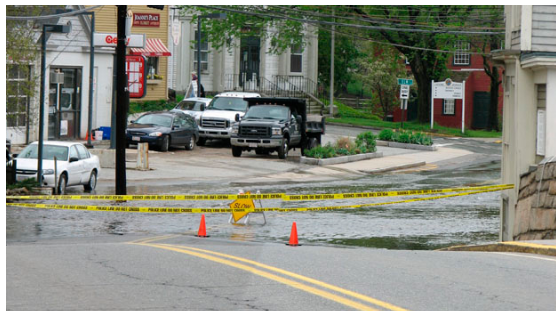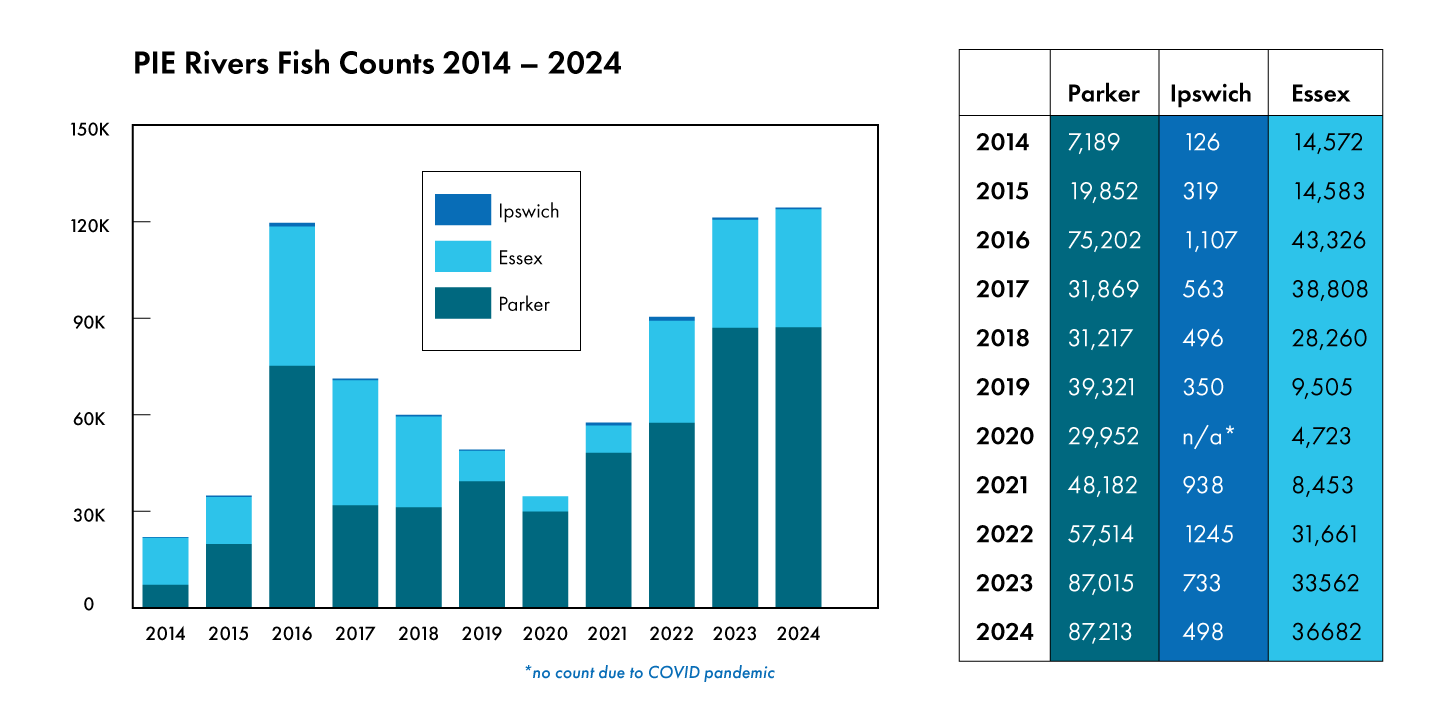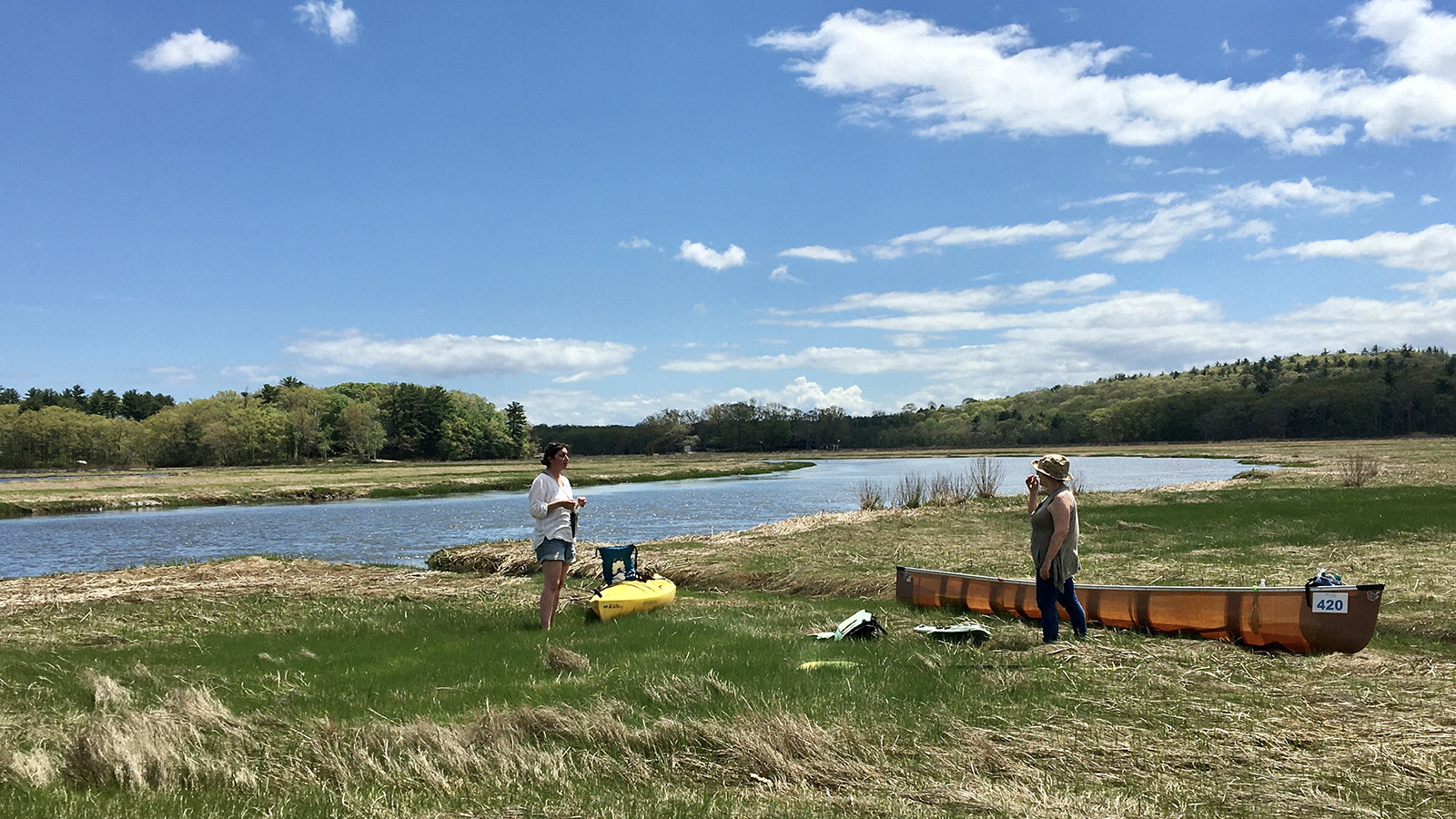Following the recent clearing at Alewife Brook to improve fish passage, many people have been…

Resilient Communities
Helping communities plan for the future is an important component of our PIE-Rivers Municipal Services Program. Begun in 2014, the program aims to support towns in their efforts to comply with water-related regulations and to plan and implement projects that address both municipal and regional priorities.
Throughout the Parker, Ipswich, and Essex watersheds, many communities are now focusing on climate resiliency planning.
This year, the North Shore towns of Andover, Beverly, Boxford, Ipswich, Salisbury, and Wenham will all participate in the Massachusetts Municipal Vulnerability Preparedness (MVP) Program by holding Community Resilience Building Workshops. These workshops gather a mix of stakeholders together to identify areas that are vulnerable to weather-related threats and to make plans to improve the town’s resilience. The MVP program asks towns to look at a variety of hazards, including drought, flooding, heat, winter storms, public health impacts, and more.
Trained as an MVP-certified facilitator, Ipswich River’s environmental planner Kristen Grubbs last year led an MVP workshop with the Town of Essex. This year, Kristen will be facilitating the MVP Planning Workshop for the Town of Ipswich. She will be joined by The Nature Conservancy’s Dr. Adam Whelchel, the founder of the state’s Community Resilience Building program, as well as Joseph Famely, Senior Environmental Scientist from the Woods Hole Group, a member of the team developing the most advanced sea level rise and storm surge inundation modeling currently being used in Massachusetts (the MassDOT Boston Harbor Flood Risk Model and Massachusetts Coast Flood Risk Model).
Sponsored by a grant from the state, MVP workshops bring together town planning, conservation, public health and public works staff with emergency responders, nonprofit groups and community stakeholders such as local business owners. The mix of participants provides local knowledge on areas that are vulnerable to climate change impacts. Subjects to be discussed include water supply, coastal and inland flooding, vulnerable people and other social and community vulnerabilities, and risks to natural systems.
This “all hands” approach is useful in order to see the breadth of how climate change is going to impact so many different aspects of communities. Ultimately, the plan that will result from this workshop will provide a roadmap of actions and projects for communities to implement. The town will then be eligible for further state funding which will help make the community, including its infrastructure, people and natural systems, better prepared for storms, droughts and extreme temperatures.
To see how your town may be affected by weather-related impacts in the future, go to the newly published Massachusetts Climate Change Clearinghouse at: http://www.resilientma.org/ , which has maps, data, and other resources. For more information on the MVP program or other community resiliency planning efforts in the PIE-Rivers region, contact Kristen Grubbs at kgrubbs@pie-rivers.org or 978-412-8200.



Comments (0)